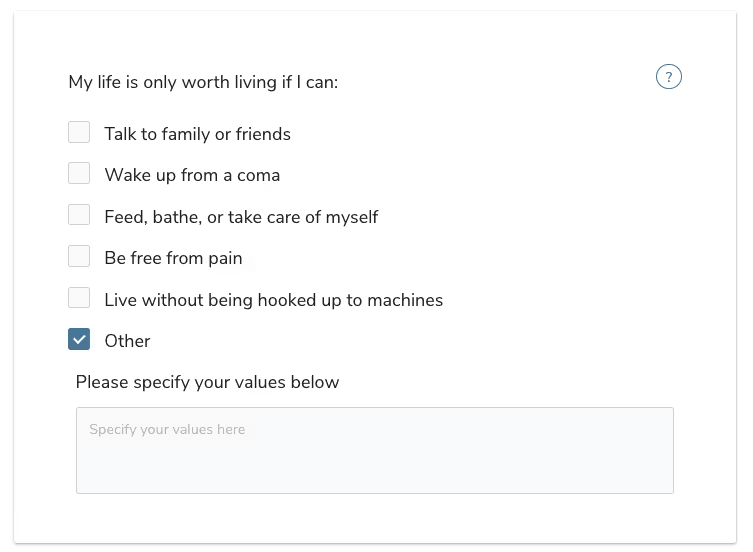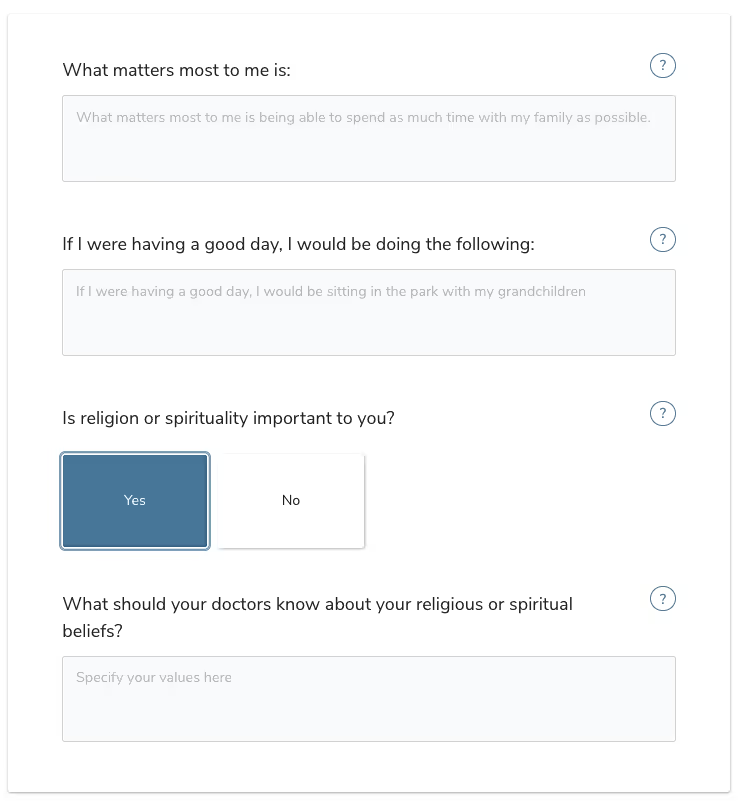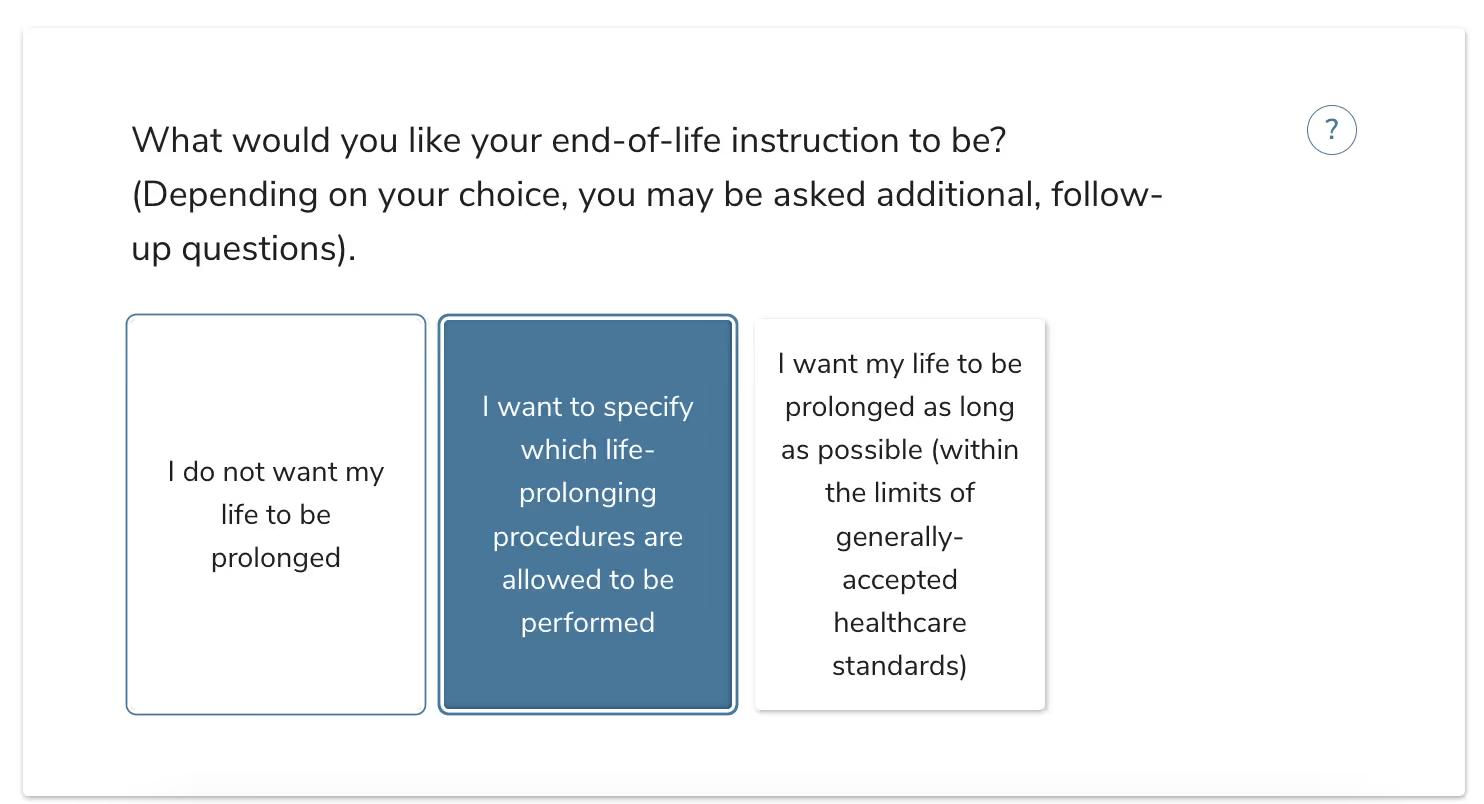As a Catholic, several fundamental principles of your faith should guide you when creating an Advance Healthcare Directive (AHCD), also known as a living will or medical power of attorney. These principles help ensure that your end-of-life care decisions reflect the values and ethics you live by as a Catholic to protect the sanctity of life. Here are some fundamental principles to consider:
- Sanctity of life: The belief in the sanctity of all human life from conception to natural death is foundational. Your directive should prioritize life-sustaining treatment whenever possible and reflect the commitment to respect and protect life as a gift from God. Every person has a duty to preserve his or her life and to use it for God’s glory. As such – suicide, euthanasia, and acts that intentionally and directly would cause death by deed or omission are never morally acceptable.
- Informed consent: You have the right to direct your care and the responsibility to act according to the principles of Catholic moral teaching. Each person has a right to clear and accurate information about a proposed course of treatment and its consequences so that he or she can make an informed decision about whether or not to receive the proposed treatment. Engage in thoughtful reflection, gather relevant medical information, and consult with healthcare professionals, clergy, or experts in Catholic bioethics to make informed choices.
- Ordinary vs. extraordinary means: Distinguish between ordinary and extraordinary means of medical treatment. Death is a beginning, not an end. Death, being conquered by Christ, need not be resisted by any and every means, and a person may refuse extraordinary medical treatment. A treatment is “extraordinary” when it offers little or no hope of benefit or cannot be provided without undue burden, expense, or pain. Medically assisted food and water are considered “ordinary” care since they serve a life-preserving purpose even when provided by an IV or feeding tube, unless you are actively dying or unable to absorb nutrients.
- Palliative care and pain management: Acknowledge the importance of palliative care, which focuses on relieving pain, symptoms, and stress associated with serious illnesses. Everyone has the right to comfort and to seek relief from pain. Although our faith teaches that we can find meaning in suffering, no one is obligated to experience pain, especially severe pain. However, depriving the dying person of consciousness without a serious reason is immoral.
Steps you can take to create an Advance Healthcare Directive (AHCD) as a Catholic
- Appoint a healthcare proxy (agent): Designate a loved one or trusted friend as your healthcare proxy or durable power of attorney for healthcare. Consider choosing someone who shares your Catholic values and understands your wishes regarding medical treatment. Ensure that your proxy is aware of and committed to upholding Catholic teachings on end-of-life issues.
- Use FreeWill to document your wishes according to your Catholic faith: By using FreeWill, you can customize your AHCD to reflect your specific wishes regarding end-of-life care, ensuring that your decisions align with your Catholic faith.
Important sections to consider in the FreeWill Advance Healthcare Directive
Values + Wishes
Under the section, “My life is only worth living if I can...” choose “Other” and share your wishes based on your Catholic faith.
Suggested sanctity of life language from the Catholic Church*:
“As a Catholic, I believe that God created me for eternal life in union with Him. I understand that my life is a precious gift from God and that this truth should inform all decisions about my health care. I have a duty to preserve my life and to use it for God’s glory. Suicide, euthanasia, and acts that intentionally and directly would cause my death by deed or omission, are never morally acceptable. However, I also know that death, being conquered by Christ, need not be resisted by any and every means and that I may refuse any medical treatment that is excessively burdensome or would only prolong my imminent death. Those caring for me should avoid doing anything that is contrary to the moral teaching of the Catholic Church.”

"What matters most to me is..."
Consider suggested informed consent, ordinary care, funeral last rites, and palliative care language from the Catholic Church.*
“Medical treatments may be foregone or withdrawn if they do not offer a reasonable hope of benefit to me or are excessively burdensome. There should be a presumption in favor of providing me with nutrition and hydration, including medically assisted nutrition and hydration, if they are of benefit to me. In accord with the teachings of my Church, I have no moral objection to the use of medication or procedures necessary for my comfort even if they may indirectly and unintentionally shorten my life. If my death is imminent, I direct that there be forgone or withdrawn treatment that will only maintain a precarious and burdensome prolongation of my life, unless those responsible for my care judge at that time that there are special and significant reasons why I should continue to receive such treatment. If I fall terminally ill, I ask that I be told of this so that I might prepare myself for death, and I ask that efforts be made that I be attended by a Catholic priest and receive the Sacraments of Reconciliation, Anointing, and Eucharist as viaticum.

"What would you like your end-of-life instruction to be?"
Choose “I want to specify which life-prolonging procedures are allowed to be performed.”
Based on Catholic beliefs of ordinary vs. extraordinary means, consider adding, “I would want artificially administered food and water.”

If you have any questions or are unsure about the wishes to include in your Advance Healthcare Directive, please contact your Priest or Diocesan office.
*Catholic Church suggested language made in partnership with FreeWill Catholic Partners
Make your free estate plan today

Make your free advance healthcare directive

Make your free durable power of attorney

Make a stock donation today

Make your free revocable living trust










